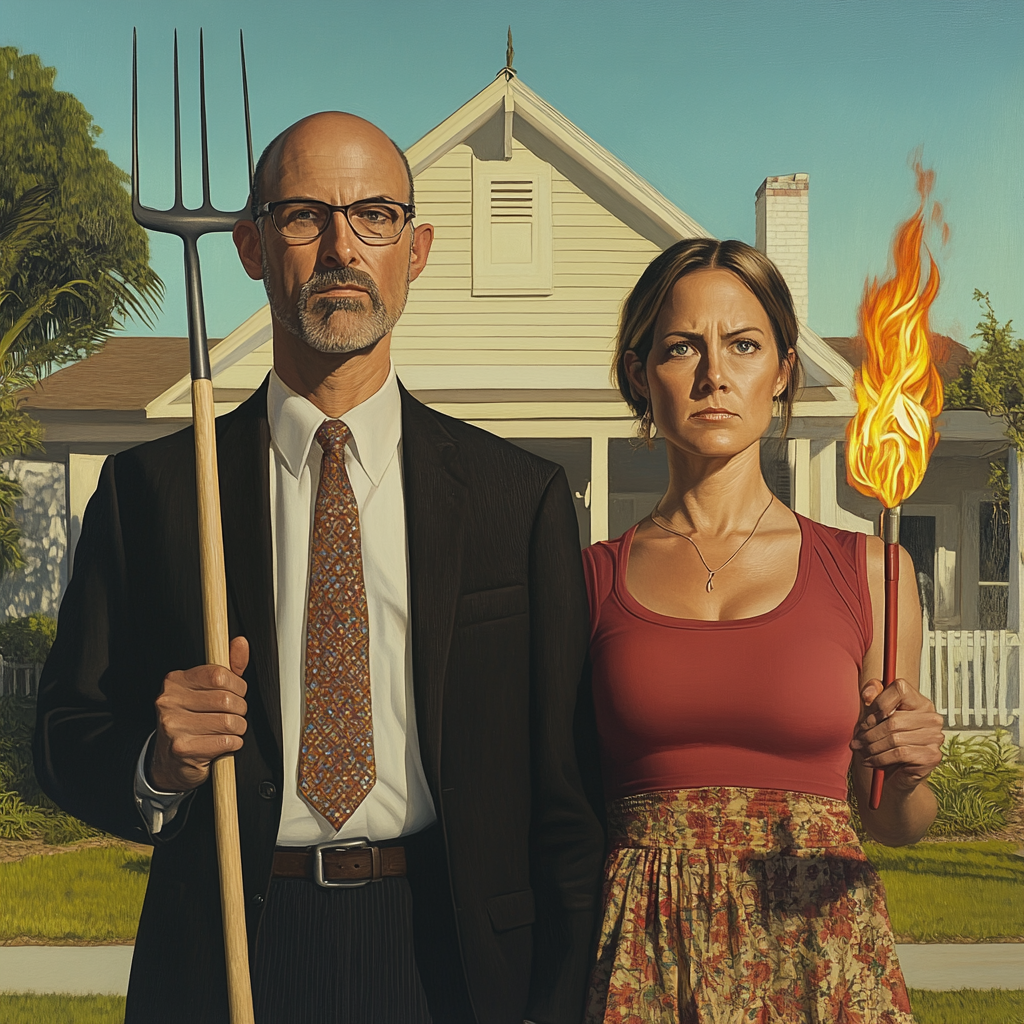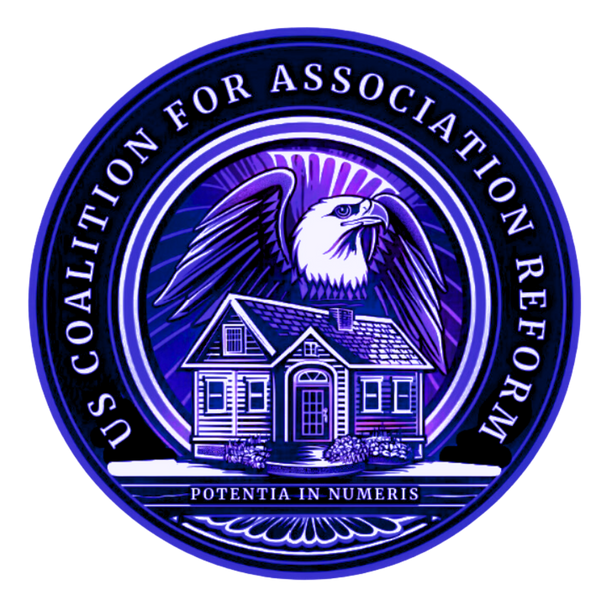
USCFAR’s Moral and Ethical Stand Against HOA and Communal Associations: A Call for Change
Share
Homeowners associations (HOAs), condominium boards, co-ops, and other communal associations have become a common feature of American life. These organizations promise to maintain order, improve property values, and create harmonious communities. But beneath the surface, there are growing concerns about the power these associations wield and how that power is used. USCFAR (US Coalition For Association Reform) has taken a strong stance against these entities, arguing that they violate fundamental constitutional rights and undermine the values enshrined in America’s founding documents.
At the heart of USCFAR's position is the belief that these organizations have become de facto governments, exercising authority in ways that conflict with the basic freedoms guaranteed to all Americans. In this blog post, we’ll dive deeper into USCFAR’s moral and ethical perspective on the matter, explore the legal and philosophical underpinnings of their arguments, and consider the broader implications for homeowners and citizens living under the thumb of communal associations.
The Problem with Communal Associations Acting as Governments
USCFAR’s primary argument is that HOAs, condo boards, co-ops, and similar associations function as quasi-governmental bodies. These organizations have the authority to impose rules, regulations, and fines on residents—sometimes to an extreme degree. The issue here is that these governing bodies are not subject to the same checks and balances that traditional governments must adhere to.
In many cases, these associations can:
- Levy fines for minor infractions, such as unapproved exterior paint colors or lawn maintenance.
- Place liens on homes for unpaid dues or violations, leading to the potential loss of one’s home.
- Restrict freedom of speech, assembly, and other constitutional rights through restrictive covenants and community guidelines.
USCFAR argues that these actions violate the constitutional guarantees that are supposed to protect all Americans, regardless of where they live. Living in an HOA or condominium should not mean forfeiting the same rights afforded to those who live outside of planned communities. Yet, that is often exactly what happens.
The Declaration of Independence and HOA Violations
One of USCFAR’s boldest claims is that communal associations, as they currently exist, violate the principles of the Declaration of Independence. This is a document revered as one of the cornerstones of American democracy. It is where the idea that “all men are created equal” and endowed with “unalienable Rights” to “Life, Liberty, and the pursuit of Happiness” is enshrined.
HOAs, condo boards, and co-ops, according to USCFAR, violate these core principles by placing undue restrictions on homeowners. They restrict liberty by enforcing rules that limit personal freedoms. They undermine happiness by creating stressful living environments where residents are constantly monitored and penalized. And in extreme cases, they threaten one’s very livelihood by placing homes at risk over trivial matters.
USCFAR believes that these organizations are artificial constructs—corporations, in essence—that have been granted far too much power over individuals’ lives. By imposing restrictive covenants, they put contracts above the Constitution, a situation that should be intolerable in a free society.
The Abrogation of Rights
USCFAR further argues that no corporate structure, including communal associations, should have the right to “abrogate” the rights of any American. In legal terms, to abrogate means to repeal or do away with something—usually a law, right, or formal agreement. In the case of communal associations, USCFAR contends that restrictive covenants, bylaws, and association rules do just that: they override individuals’ constitutional rights.
For example:
- Freedom of speech: Some HOAs and condo boards have rules prohibiting residents from displaying political signs or flags. This directly infringes on the First Amendment right to free expression.
- Right to due process: When residents are fined or penalized by their HOA, they often have little to no recourse. There is no impartial court or hearing process, just a board of fellow homeowners who may have their own biases or personal interests.
- Right to property: The ability of HOAs to place liens on homes or even foreclose on properties over unpaid dues or violations represents a fundamental threat to property ownership.
These rights, USCFAR argues, are too important to be overridden by a corporate structure that was not designed to protect the individual. The United States Constitution, and the rights it protects, should take precedence over any private contract or agreement.
The Right to Dissolve Corporate Structures
USCFAR also believes that the structure of these associations is deeply flawed. Currently, most HOAs and condo boards operate on a model that makes it difficult for residents to change or dissolve the governing body, even when it is clear that the system no longer works. USCFAR’s stance is that these corporate structures should be easily dissolved if a simple majority of the community’s shareholders (the homeowners) agree that the system is no longer serving them.
This idea taps into a broader philosophical tradition rooted in democracy and self-determination. Just as the Founding Fathers argued that it was the right of the people to "alter or abolish" a government that no longer protected their rights, USCFAR contends that homeowners should have the right to dissolve an association that is no longer working for them.
The current reality is that many HOAs and condo boards make it nearly impossible to dissolve or change leadership, trapping residents in a system that they no longer support. This lack of accountability is a serious issue, one that USCFAR aims to address.
A Call to Action: Throwing Off the Shackles
USCFAR’s message to homeowners and residents is clear: it is time to throw off the shackles of these restrictive communal associations. The organization sees the current system as a form of mental, physical, and spiritual slavery—one that denies individuals their inherent rights to life, liberty, and the pursuit of happiness.
The phrase "shackles of slavery" may seem dramatic to some, but it speaks to the profound frustration and powerlessness that many residents feel when dealing with HOAs and condo boards. USCFAR’s position is that Americans should not be subjected to the whims of a corporate entity simply because they chose to live in a planned community.
The Path Forward: Reform and Empowerment
So, what is the solution? USCFAR advocates for widespread reform of communal association laws and practices. Specifically, the organization calls for:
- Greater oversight and accountability: Communal associations should be subject to more stringent legal oversight, ensuring that they cannot infringe on constitutional rights.
- Easier paths to dissolution: Homeowners should have a clear, simple process for dissolving an HOA or condo board if the majority of residents no longer find the system beneficial.
- Restoration of constitutional rights: Residents of planned communities should not have to sacrifice their First Amendment rights, property rights, or any other constitutional protections.
- Public awareness and education: Many homeowners are unaware of the power their HOA or condo board wields until it’s too late. USCFAR seeks to educate the public about the risks of these communal associations and empower individuals to stand up for their rights.
Conclusion
The fight for individual rights in planned communities is one that is only just beginning. USCFAR’s moral and ethical position is clear: the power of HOAs, condo boards, and co-ops must be checked, and the constitutional rights of residents must be restored. By advocating for reform and empowering homeowners to take action, USCFAR hopes to bring about a future where no American is forced to choose between living in a desirable neighborhood and preserving their freedoms.
As USCFAR sees it, the time for change is now. It’s time to reclaim the rights that every American is entitled to, regardless of where they live.
